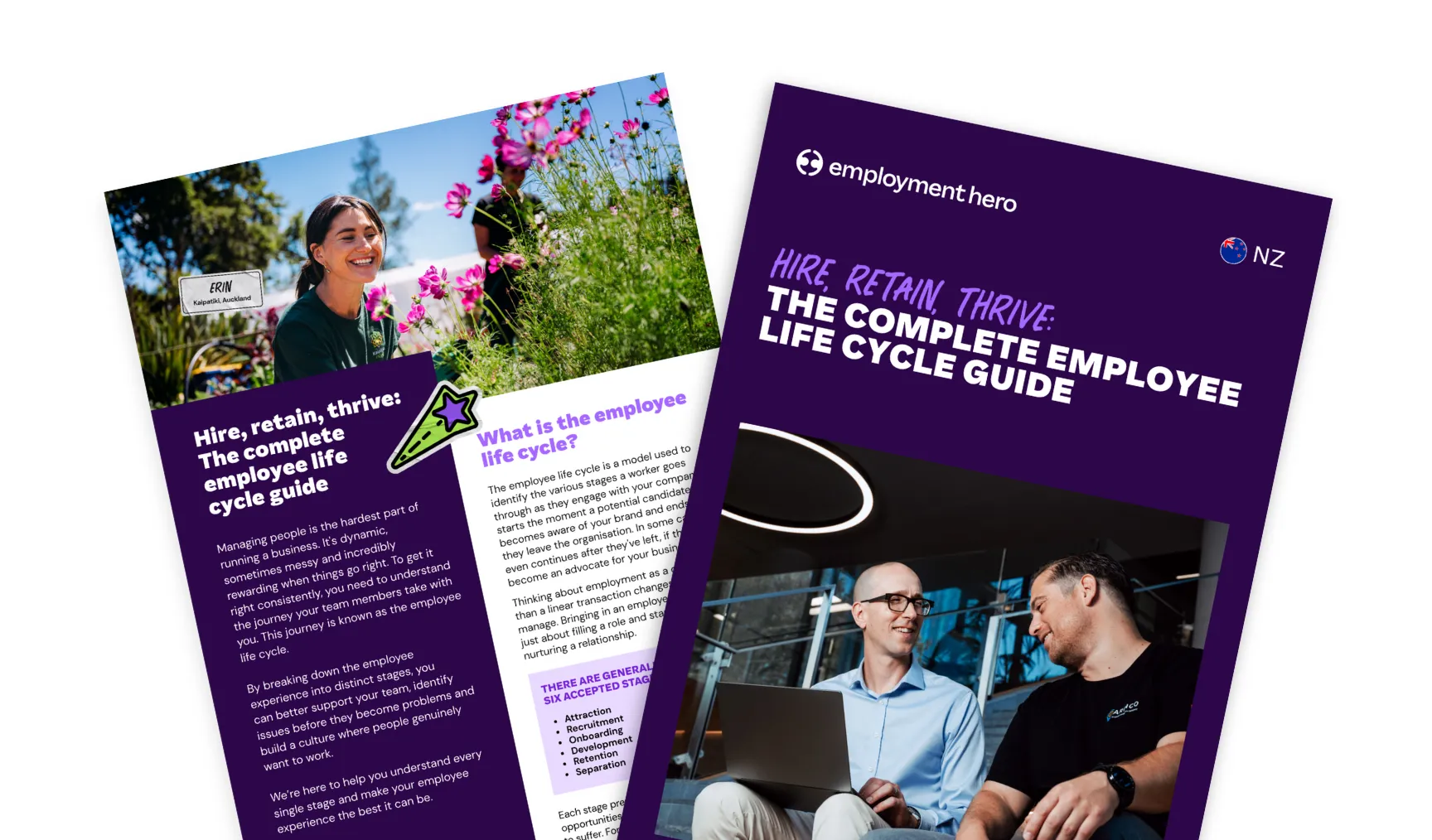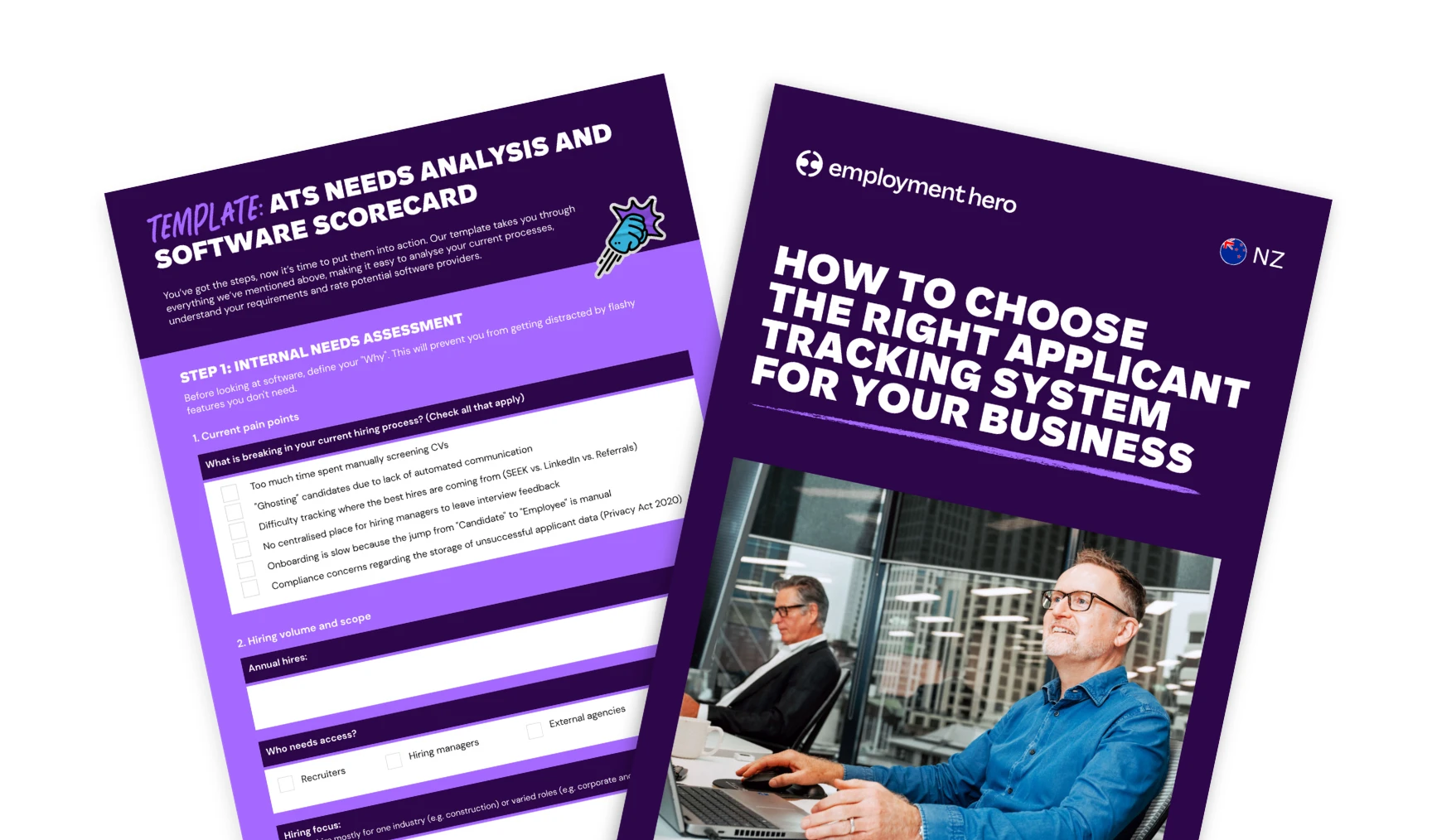Employer’s guide to garden leave in New Zealand
Published
Employer’s guide to garden leave in New Zealand
1 min read
The New Zealand Holidays Act includes many types of leave, from standard annual holidays to bereavement and sick leave. One type of leave that doesn’t exist in the legislation, but very much exists as an employment concept, is garden leave.
No, this isn’t specifically leave for those green-fingered of us to spend tending the plants by our homes. As the name suggests, it is leave designed to be spent at leisure. Garden leave is a term used to describe a period when an employee remains employed and receives full pay but does not perform any work.
Our factsheet covers:
- What is garden leave?
- Legal requirements for using garden leave
- Situations where garden leave may be used
- Alternatives to garden leave
What is garden leave?
Garden leave (also known as gardening leave) is a term used to describe a situation when an employee agrees with their employer to take time off work on full pay. There could be a variety of reasons why gardening leave is used, either while the employee is still employed or while they’re in the notice period of concluding their period of employment.
What’s the difference between garden leave and gardening leave?
Gardening leave and garden leave are the same – although gardening leave is the original term.
When can garden leave be used?
Garden leave is generally used during a notice period, after an employee has resigned, been made redundant or dismissed. Reasons for the use of gardening leave may include:
- The employee has access to commercially sensitive information and will be working for a competitor in their next role.
- The employee is being made redundant and as an employer, you would prefer to give them time to look for a new job instead of work in their current role.
- The employee is distracting other workers during their notice period.
- The employee has been dismissed and their presence is creating an uncomfortable environment for other team members.
- The employee is being investigated for a disciplinary after and doesn’t want to be formally suspended. This is tricky territory, however, and employers should not use garden leave if the employee meets the requirements of a suspension.
There are other uses for garden leave, although they’re less common and should be used with caution. If an employer has been found to have misused garden leave, they could open themselves up to legal recourse from the employee. We’d highly recommend you seek legal advice before using garden leave for either of the following reasons:
- If the permanent employee has no work to do.
- If there is a difficult (but not disciplinary) relationship situation at work and the employer considers that it would be beneficial if one or both parties didn’t attend work while going through counselling.
Is garden leave legal in New Zealand?
While garden leave isn’t named in legislation, there are still several key conditions that employers must follow if they wish to use it. The conditions are as follows:
- The employer and employee must both agree to the garden leave. The only exception to this is if a garden leave provision has been included in their employment agreement, which means the agreement has already been made.
- All garden leave provisions made by the employer in an employment agreement must be fair and reasonable.
- Garden leave should not be used to get around requirements for a suspension.
- Employees must follow their terms and conditions of employment while they are on garden leave.
Do employees get paid during gardening leave?
Employees on gardening leave do get paid because they remain on the payroll of their current employer until their notice period expires. As they are effectively still employed throughout their notice period and the period of gardening leave, they keep their entitlement to all their work rights and benefits such as salary, statutory sick leave, parental leave and annual leave.
What happens during the employee’s notice period?
Usually an employee would continue their duties and work out their notice period, including helping with a handover. However, gardening leave is a measure to prevent an employee from working after they have resigned or had their employment terminated. They may still be called upon to assist with a handover, but they will be prevented from performing their work duties and from contacting existing employees and clients or customers.
What can employees do during gardening leave?
Gardening leave is designed to restrict a person’s work life, therefore they are not able to work for their company, themselves or a competitor. As the name suggests, the only activity they are allowed to do is spend time in the garden… Gardening. This is, of course, metaphorical rather than literal. An employee on gardening leave is simply not able to do their work, but they may spend time pursuing hobbies.
Can employees access company information? No
Can employees work in another company? No
Can employees set up their own business? Not in the same line of work
Can employees go on holiday? Yes
Can employees spend time with family? Yes
What should an employer do when employees are put on gardening leave?
When an employee gives their notice of resignation, or is asked to resign, employers must make important decisions about how to manage the employee’s exit. Where fidelity is crucial to the business’s operations or reputation, you may want to enforce gardening leave and any other restrictions that are in the employee’s employment agreement. This would be to prevent any conduct which could put your company at risk.
You must continue to pay the employee, as well as provide any other contractual benefits.
When the gardening leave period finishes, you can finish offboarding your employee. Make sure that you recover any company equipment, including; laptops, office furniture, keyboards, mobile phones, credit cards, uniforms and any other items that the company has given them for their role.
For more information on the benefits and risks of using garden leave, download our factsheet.
Disclaimer: The information in this factsheet is relevant as at 24 April 2024, and has been prepared by Employment Hero Pty Ltd ABN (11 160 047 709) (Employment Hero). The views expressed herein are general information only and are provided in good faith to assist employers and their employees. The Information is based on data supplied by third parties. While such data is believed to be accurate, it has not been independently verified and no warranties are given that it is complete, accurate, up to date or fit for the purpose for which it is required. Employment Hero does not accept responsibility for any inaccuracy in such data and is not liable for any loss or damages arising either directly or indirectly as a result of reliance on, use of or inability to use any information provided in this factsheet
Register for the factsheet
Related Resources
-
 Read more: Hire, retain, thrive: The complete employee life cycle guide
Read more: Hire, retain, thrive: The complete employee life cycle guideHire, retain, thrive: The complete employee life cycle guide
Learn the full scope of the employee life cycle and how it impacts recruitment, onboarding and retention.
-
 Read more: How to choose the right ATS for your business
Read more: How to choose the right ATS for your businessHow to choose the right ATS for your business
Learn how to choose the right applicant tracking system. Explore features, vendor questions, red flags, and comparison tips in this…






















